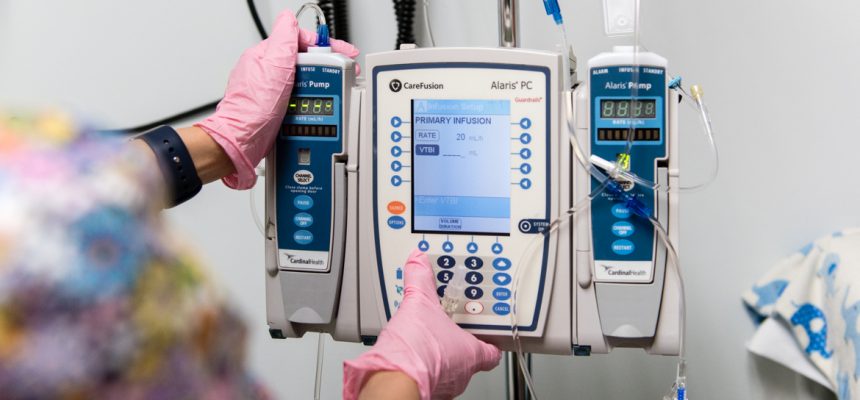GA Woman’s Cancer Care Caught Between Doctor’s Plans, Insurer Approvals
By Consumers For Quality Care, on August 8, 2019

Photo by Heidi de Marco/KHN
When Georgia resident Kim Lauerman, 57, was diagnosed with ovarian cancer, her physicians started her on chemotherapy and wanted her to begin taking Neuogen. The drug prevents infections and fever during chemotherapy. Lauerman’s insurance, Anthem Blue Cross, denied the medication, Associated Press reports. Physicians say insurance denials for consumers like Lauerman have become increasingly frequent.
In its denial, Anthem Blue Cross said that the drug was not medically necessary.
During her second round of chemotherapy, however, Lauerman developed an infection. Anthem approved the Neuogen, but the infection caused the round of chemotherapy to be cut short.
“The insurance has been great until I got to a point that I really needed something for survival,” Lauerman said.
She went on to have surgery for the cancer and now gets regular scans. Still, she worries that her cancer may return because the chemotherapy was cut short.
No independent research tracks how frequently insurance issues delay or curtail care nationally, but doctors say they’ve seen a marked increase in difficulties over the last few years.
Physicians are frustrated that insurance companies are keeping their patients from getting the care or comfort they want them to have. They say that the insurance denials and delays cause patients cause anxiety and can even create complications in the patient’s care.
“That patient is putting their life in my hands, and they need to be able to trust me,” [Dr. Ry Page] said. “When you have these outside interferences telling me I can do this and I can’t do that … that very quickly erodes the trust.”
Dr. Barbara McAney says that insurance company delays have become common for her cancer patients.
“When patients have chronic pain and you make them go without their pain medication for several days … waiting for the wheels of insurance companies to turn, it is cruel,” said the Albuquerque, New Mexico-based oncologist and former president of the American Medical Association.
Insurers, on the other hand, deny that their reviews are meant to delay care, adding that medical advances have meant that there are more cases to review.
They say the checks are not meant to delay or stifle care, and they see them as a way to talk to doctors about the best approach and to guard against unnecessary treatment.
“It’s not the end of the conversation,” said Kristine Grow, a spokeswoman for the insurer trade group America’s Health Insurance Plans.



